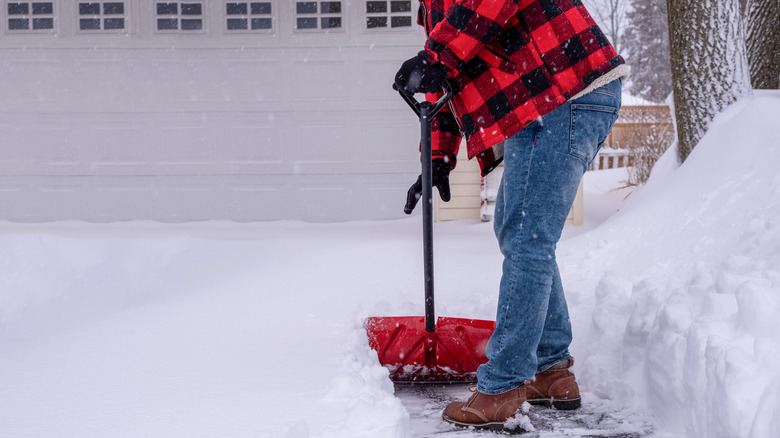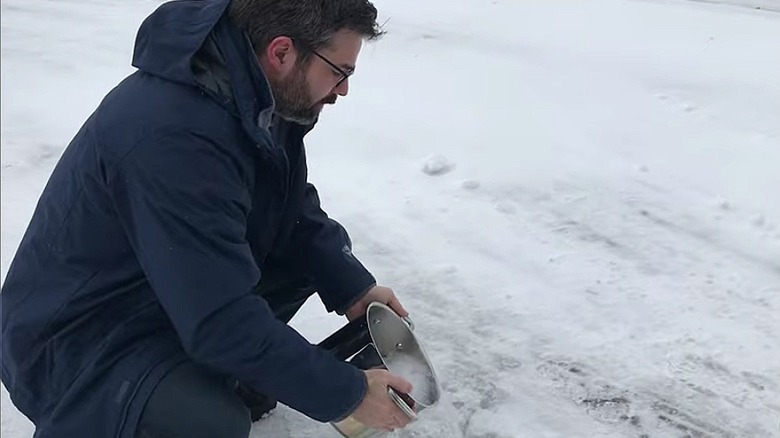This Home Essential Can Serve As A Rock Salt Alternative During Frozen Winters
When you live in the country or suburbs, getting absolutely anywhere requires a car. Because of this, an icy driveway during the winter is a constant battle. After rain or snow and a significant temperature drop, you've got a skating rink in front of the garage and no choice but to handle it. Creative DIYers have tried to use coffee grounds as a de-icer, but this solution may simply leave you with a driveway that looks and smells like discarded iced coffee. There are many other options available; some are filled with chemicals, while others are more natural but still problematic like rock salt. A fantastic and much safer alternative to rock salt is melting the ice with distilled white vinegar that has been diluted with hot water.
While rock salt is an option, unfortunately, it's incredibly damaging to driveways, causing their imperfections to split open. It can get into the ground, refreeze, and enlarge the cracks. Salt is equally corrosive if it gets on the underside of your car as well as any outdoor lighting fixtures alongside the driveway. Also, rock salt is terrible for dogs; it burns their paws, and if they lick it off, they could face sodium poisoning or kidney damage, per the Pet Poison Helpline. If your winters are a touch milder than those in Alaska or Canada, vinegar might just be the perfect de-icer.
The safest way to use vinegar to melt ice
To complete this hack, you'll need a pot of water, distilled white vinegar, a shovel for the inevitable but slightly easier ice removal, and an outdoor broom. Note that acetic acid is the powerful ingredient that melts ice by lowering its melting point, but it must be diluted. Heat up the water on the stove, then add an equal amount of white vinegar and pour it onto a small section of the driveway. The surface should turn a little slushy, enabling you to break apart and discard the ice with your shovel. We recommend using a push broom to sweep excess water downward and into the street so new ice doesn't form. Then, repeat these steps until your driveway is clear.
Keep in mind that this may take longer than using rock salt, but it's much safer. Even though it has a sharp and pungent odor, vinegar is non-toxic and safe for children and pets to be around. However, although it's generally safe, it's important to dilute vinegar because the acid could cause damage, as it could break down the sealant on your driveway. Further, when shoveling vinegar-soaked ice off of your driveway, discard all of it into the street or onto the sidewalk. It's best not to toss shovelfuls of ice onto any plants because vinegar could harm your grass and landscaping.

